Top 5 Machine Learning Libraries in Java
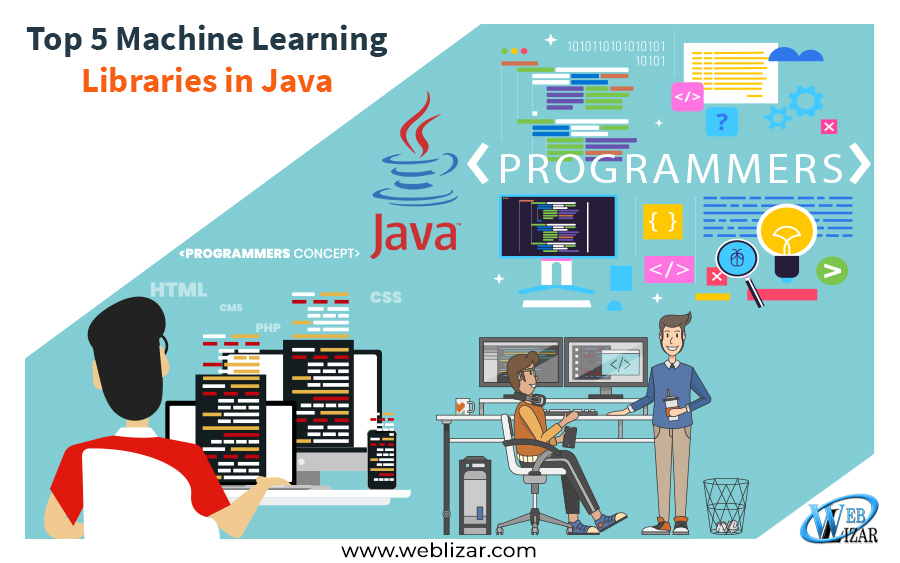
,Java programming language which is currently used in developing standalone, enterprise, gaming, and other applications. Taking this technological generation to another next level by providing powerful resources. The modern development trends have provided us the thousands of libraries to simplify our works. Whether it is about complex face recognition algorithms or prediction model used in stock marketing. Java offers us the APIs to simply integrate with our written code and achieve the desired outcome. Java Training is necessary if you face any trouble while developing such applications. You can also leverage the blogs, videos, slide shares, QA. And many more resources available over the internet to deeply explore this programming language. Here, I’m writing 5 top most machine learning libraries offered by Java. Let’s have a look:
1) DeepLearning4j :
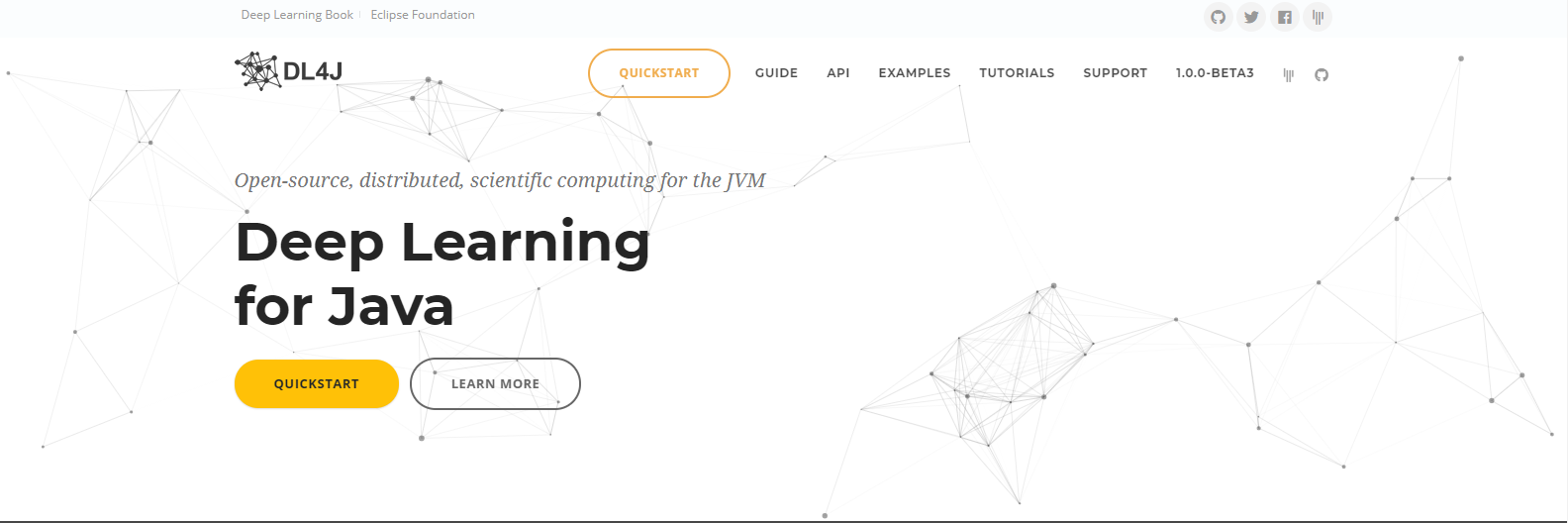
DeepLearning4j is an open-source, distributed deep learning library. Available to accomplish scientific computing for JVM. It is written in Java and Scala offering support to all JVM languages. DL4J is coped up with the integrated Hadoop and Spark framework for executing business environments on GPUs and CPUs.
In the nutshell, DL4J allows you to deal with complex neural nets problem providing incredible accuracy in the results. It allows you to merge the multiple autoencoders, recurrent nets and convolutional nets to boost the distributed programming. It has the ability to handle huge distributed data and perform various jobs concurrently. Thus, tasks like pattern recognition driven by deep reinforcement learning can be achieved easily. One of its best examples can be seen in identifying anomalies in the FinTech sector operations such as transactions.
2) MALLET :
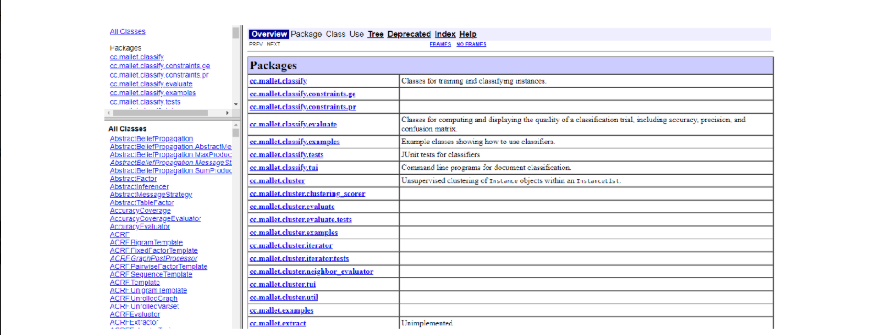
MALLET is pronounced as Machine Learning for Language Toolkit. It is a massive natural language processing (NLP) algorithms library developed for driving growth of ML applications. Whether it is about document classification or clustering or you are going for extracting details and topic modeling- MALLET will help. It offers Java APIs and CLI to successfully run your application. Algorithms like HMM, conditional random fields, logistic regression etc., can be used by implementing MALLETs API.
One can use it for the commercial as well as open-source application development. Its instance is shown with name, data, source and respected label. You need methods like instance per file and instance per line to import data into the MALLER format.
3) RapidMiner :
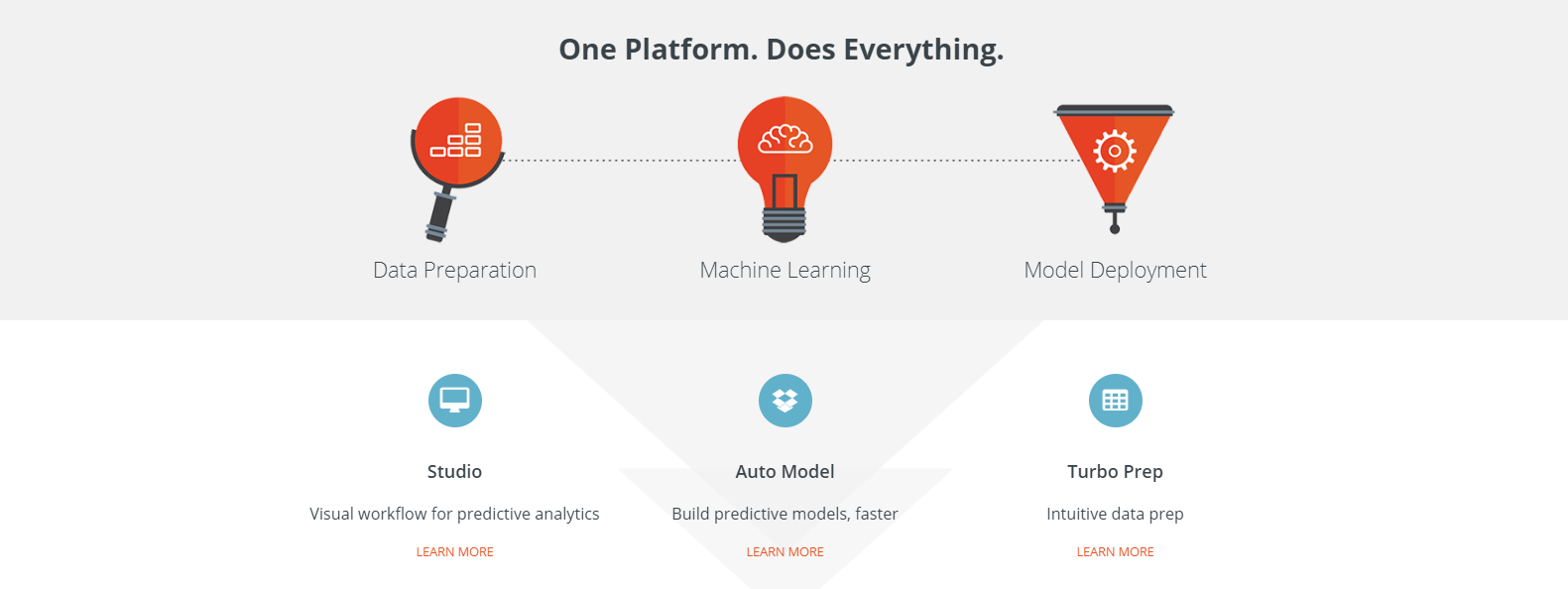
RapidMiner was developed at Technical University of Dortmund, Germany. It provides various products for creating new data mining process, predictive analysis models etc. Here you can leverage features selection, data loading and cleaning with GUI. It’s Java API allows you to develop your own ML application. For dealing with data handling, visualization, modeling etc., it has tools like RapidMiner Server, Studio, RapidMiner Radoop, Streams. On a single platform, you can perform all your work- from data preparation to model deployment. Its auto model enhances the productivity of data analysts. And scientists presenting a clear picture of the model to understand its working.
4) Java-ML :
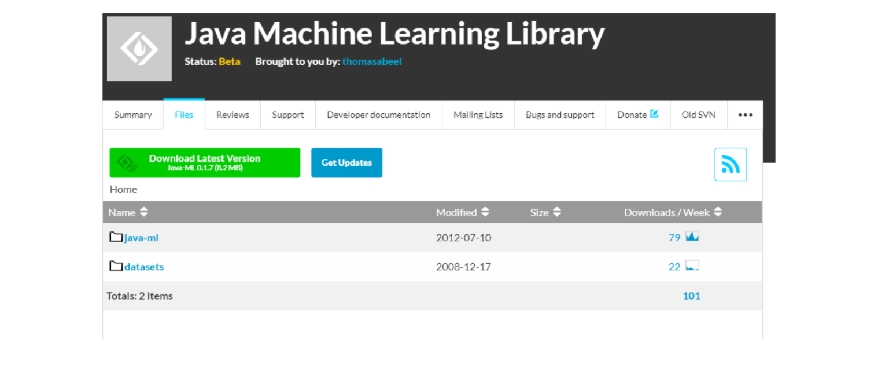
Java machine learning library provides a bunch of machine learning algorithms to simplify complex ML works. The main motive is to assist programmers and engineers with Java APIs. It has algorithms for data preprocessing, scoring selection, ranking, classification, clustering, feature selection, filtering etc. One can directly access Weka’s algorithms with Java-ML API.
It provides various consistent interfaces and algorithms which you are not available in other ML libraries packages. Such as random forest attribute evaluation. This library is also accessible under the GNU GPL license.
Here, you can use any kind of file the only requirement is one data sample per line. The features are distinguished with comma, tab or semi-colon.
5) Weka :
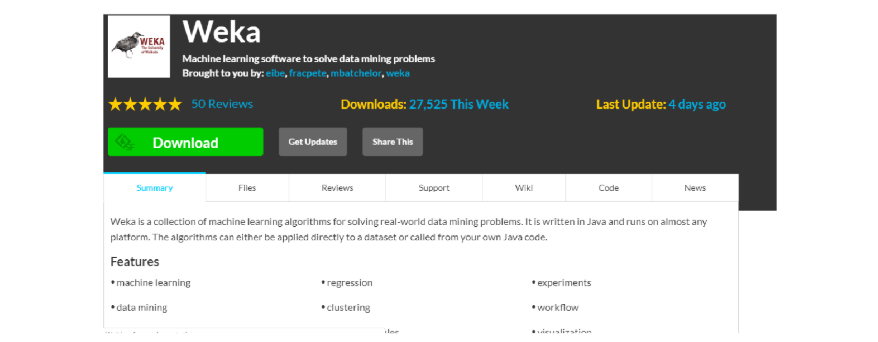
Weka stands for Waikato Environment for Knowledge Analysis. Developed at the University of Waikato of New Zealand. It is the most famous Java library for machine learning. From performing a general purpose to complex ML tasks Weka offers varieties of solutions. For classifications, clustering, regression, feature selection etc. Its user-friendly graphical user interface allows a user to easily integrate through Java APIs.
Weka holds more than 267 algorithms to utilize complex tasks like data pre-processing, attribute selection, regression, association rules mining etc. The graphical interfaces allow you to manage tasks like data exploration. And, Java API helps in developing ML schemes and the implementation of various algorithms in your program.
Data analysts and scientists are using Weka 3 workbench in data mining, data analysis and predictive modeling like operations. And the best part- it is completely free of cost and portable in nature providing a great user experience. You can directly apply the Weka machine learning algorithm libraries collection to the dataset. Or you can make calls from your written Java code.
Thus, you can see implementing machine learning in your application has become easy after the introduction of such libraries. Then what are you waiting for- open your system. And write whatever innovations are shuffling around your mind and make it smart through these libraries? Whether you are looking for developing a decision-making model or complex recognition application- everything is possible.



Leave a Reply